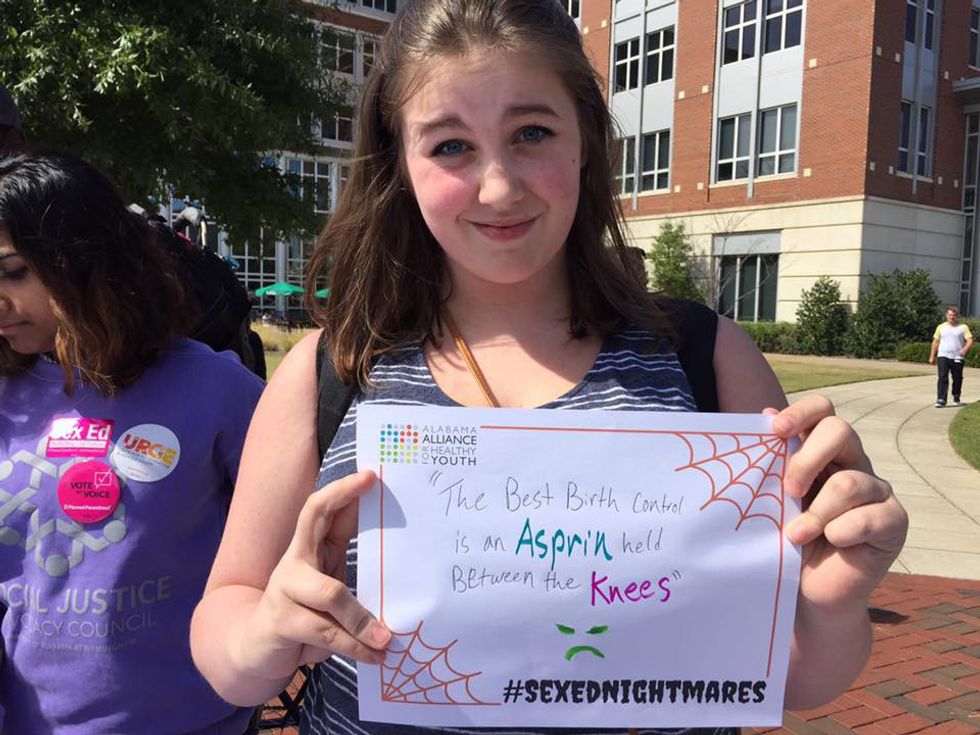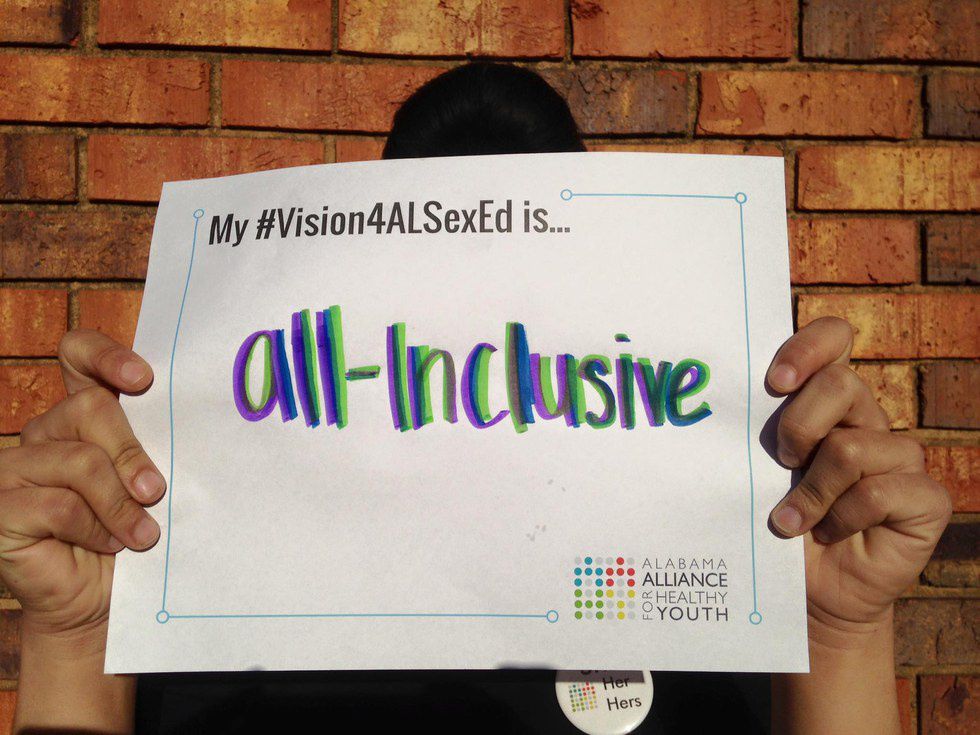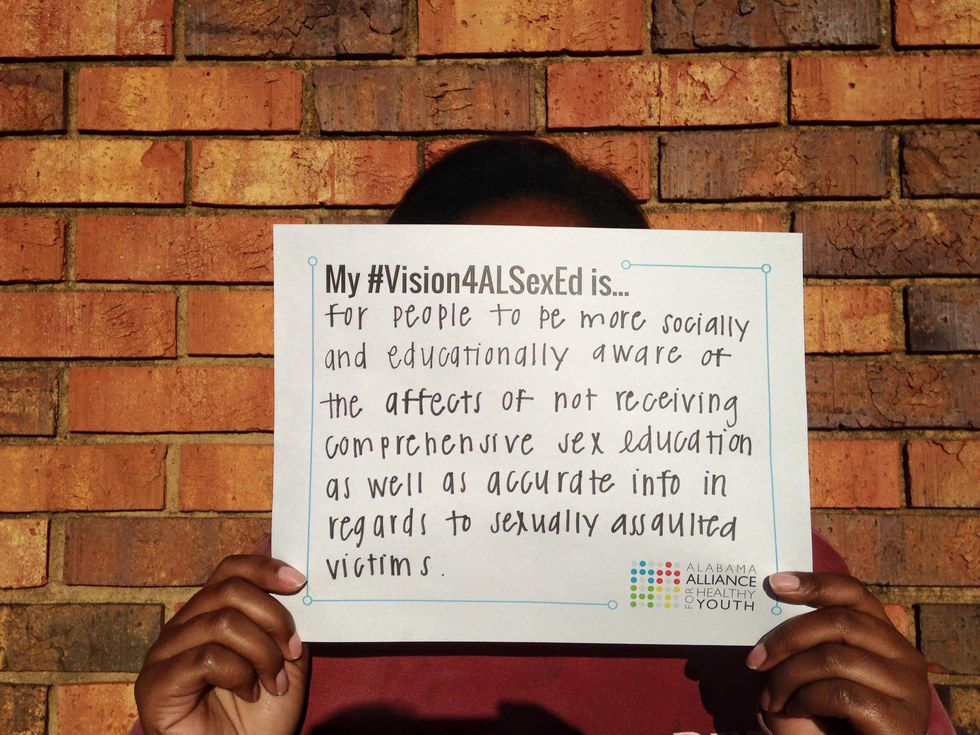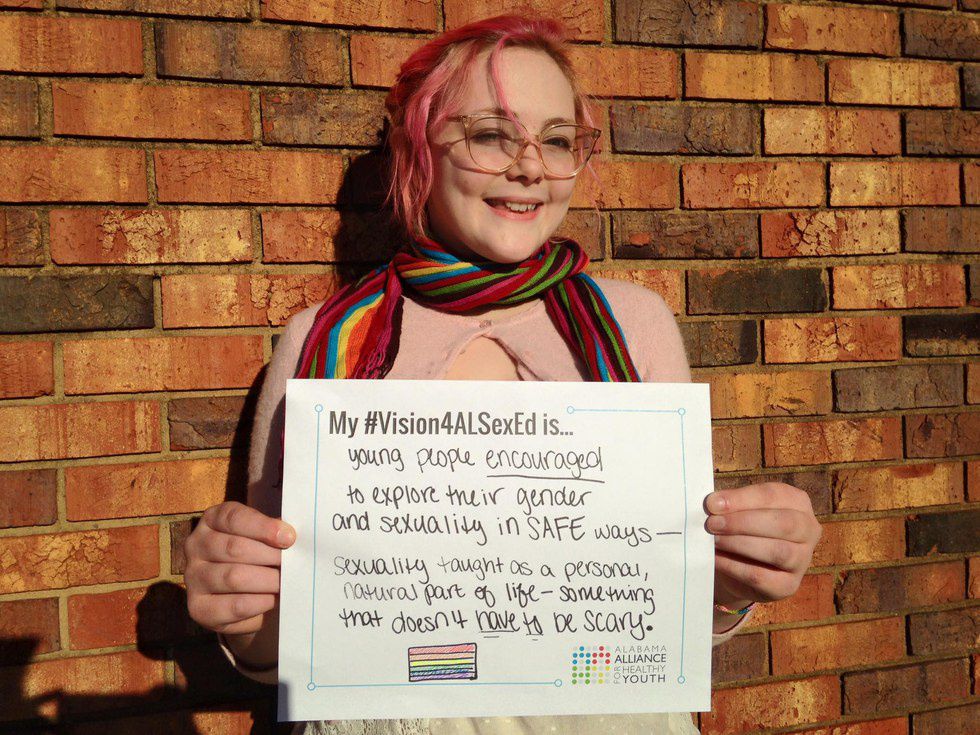Sex is a touchy subject. It's the opinion of a lot of people that the risk of pregnancy or sexually transmitted infections (STIs) far outweigh the supposed gains. Being sexually active at a young age is associated with poor self-respect, unfinished educations, and general trashiness. For a great many people in Alabama, sex outside of marriage is still considered evidence of some type of moral deficiency. In reality, though, roughly half of Alabama's teens are reporting having had sex.
In 2013, 48.9% of female high school students and 50.5% of male high school students in Alabama reported ever having had sexual intercourse, compared to 46% of female high school students and 47.5% of male high school students nationwide.
In 2013, 4.6% of female high school students and 9.3% of male high school students in Alabama reported having had sexual intercourse before age 13, compared to 3.1% of female high school students and 8.3% of male high school students nationwide.
In 2013, 37.1% of female high school students and 34.5% of male high school students in Alabama reported being currently sexually active (defined as having had sexual intercourse in the three months prior to the survey), compared to 35.2% of female high school students and 32.7% of male high school students nationwide.
With the numbers proving that being sexually active during teen years is pretty much the norm, and with Alabama's ridiculous high teen pregnancy and birth rates, one would think that Alabama lawmakers would be interested in doing something to promote healthier behavior among youth. However, according to Alabama Code Title 16. Education. § 16-40A-2 (our sex ed law,) making young people feel bad about their decisions to become sexually active is way more important than learning about condoms and other barrier methods or various birth control methods (you know, the things that actually promote safer sex.)
Here are a few excerpts from the law:
An emphasis on the importance of self-control and ethical conduct pertaining to sexual behavior.
(If that last bit in particular bothers you, stay tuned, because that's a whole different can of worms to dig into. But it's important to be aware that this is what is literally written in our law books.)
It's true that the law does technically require that if sex ed is taught, methods of contraception and STI prevention should be mentioned. In practice, though, most young people are getting false information and mega out-of-whack scare tactics (if they get sex ed at all!) The Alabama Alliance for Healthy Youth, a statewide group of diverse youth and young adults working together to influence policies and programs that support sexual health (that I'm lucky to be a part of), recently highlighted these awful experiences with a Halloween-themed campaign, #SexEdNightmares. Here're a few fun examples:
This information is just so obviously untrue and extremely harmful. In fact, according to Public Policy Polling in Jefferson and Shelby Counties in 2015, 79% of parents want their children to know how to use condoms. 84% of parents want their children to know how to use birth control methods. 94% of parents want their children to know about transmission of STIs. So why is it that so many schools are leaving this vital information out of their curriculum, or, even worse, giving their students dangerously false information?
If there's anything I've learned from two years of lobbying for better sex education at both the state and federal level, it's that people freeze up when they hear the word sex. Politicians are uncomfortable when a group of teenagers comes into their office demanding comprehensive sex ed. When I'm talking to people on the streets about the work they do, they immediately tune me out when they hear the phrase comp sex ed.
I get it, it's a politically charged phrase. The reason parents cling to abstinence-only education (comp sex ed's evil nemesis) is because of this false notion that if we're not teaching them abstinence, we must be teaching them to have as much wild careless sex as they'd like! There's a misconception that when liberals push for comp sex ed, we're asking schools to encourage sexual behavior, to downplay the risks associated with sex, and to even encourage abortion as the one true answer to an unwanted pregnancy. There's an idea that if we teach teenagers how to have safe sex, they'll have unsafe sex, and if we teach them to not have sex, they just won't! (Again, the statistics prove that this just isn't true.)
However, I can say, as one of the lucky ones to receive true comprehensive sexual health education, it is so much more than here's how to have sex! My experience with comp sex ed has had such a positive impact on my relationship with myself and the way I develop my relationships, and I believe that every young person should have an experience like mine.
Last April, I traveled to Montgomery with the Alabama Alliance for Healthy Youth to lobby legislators about comprehensive sex ed. At a rally on the capitol steps, I was asked to speak about my positive experience with sex ed. This is the speech I wrote:
As a student of the Alabama School of Fine Arts in Birmingham (ASFA), my high school experience was atypical, to say the least. Had I continued going to the school in the system I was zoned for, I would have never received sexual health education. Before I left that school system for Birmingham in the ninth grade, my only experience with sex ed was the infamous puberty video, which they had shown to us in the fifth grade, and made sure to present it in the most terrifying way possible.
At ASFA, students are given comprehensive sex ed classes in the eighth, tenth, and twelfth grades. They're taught by a fantastic educator who self-identifies as sex positive and is affirming of LGBTQIA+ youth. My second year at ASFA, tenth grade, I took my first sex ed class with him. At that point in my life, everything I had learned about sex was from PG-13 teen movies, stories swapped from the back of the school bus, and the Internet. Armed with the dirty humor of a twelve-year-old boy, I considered myself a real expert on sex, but my first day in sex ed changed that for me. I was nearly sixteen at the time, and I did not know the anatomy of my own body. I did not know how to track my menstrual cycle. I didn't even know what ovulation was. I learned so much in sex ed, and it totally changed the way I viewed and understood my body.
My favorite part of the sexual health education at ASFA is how specific to each age group the lessons are. The eighth grade class focuses on the basics of sexually transmitted infections and the importance of practicing safe sex-- note that this is accomplished without fear tactics, with no explicit slideshow detailing the effects of STIs. The 10th grade class focuses on forming a healthy relationship with one's own sexuality, on forming bonds with others, on getting to know one's bodies. We discussed how binary gender roles affect what's expected of people in terms of sexuality, and how to combat these expectations within ourselves. At that time in my life, I was in my first serious relationship, and I was just becoming sexually active. I cannot stress how important those lessons were in that relationship. I was able to avoid situations that didn't make me comfortable, and talk openly with my partner about having safe sex that made us both happy. Unlike most of my peers, I've been able to walk away from my first sexual relationship with no awkward or terrifying first-time stories. In the twelfth grade class, our instructor also gave us information and resources for pursuing healthy sex lives once we leave for college, no matter the amount of partners we choose to have. We discussed consent. We discussed healthy communication between sexual partners. It was an incredibly safe and validating environment, and I am so thankful for the experience.
Getting to know one's sexuality is an important part of growing up. I am just eighteen years old, still a teenager. I know that it's hard for our parents and mentors to hear, but teenagers are interested in sex. It's part of our lives. It's been a part of my life since middle school, and I can say for certain that before my experience with comprehensive sex ed, my view of sex was dark, muddled, and shameful. Being taught about sexual health in an honest and non-judgmental fashion has had a huge effect on the person I've grown into. I will forever be thankful for the sexual health education I received at ASFA for taking that shame away.
In the spring, as a follow-up to the #SexEdNightmares campaign, the Alliance introduces the #Vision4ALSexEd campaign, giving young people the space to imagine what would be taught in an ideal sex ed class. Here are a few examples, including mine. As you can see, we want so much more than information on how to have sex. Sexual health education is an issue of forming a healthy relationship with one's self, their body, and the world around them, and it's an integral part of growing up.


























